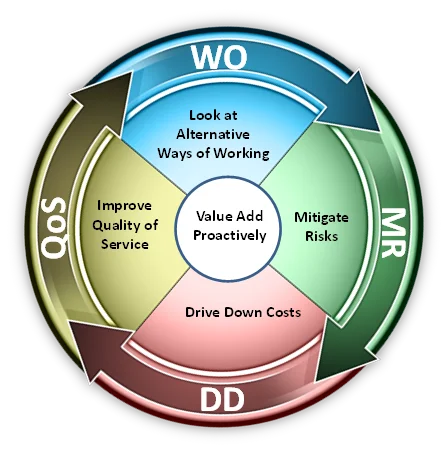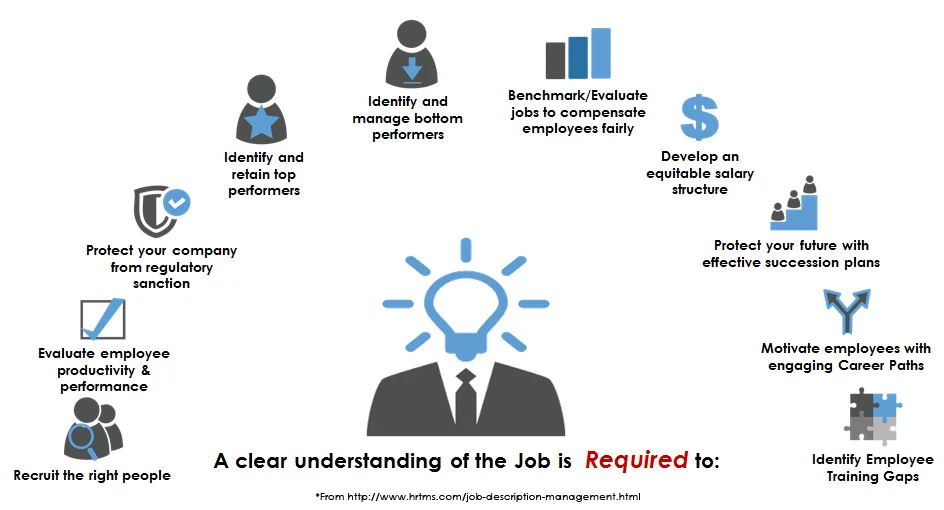
In business, hiring the right people is often the key to lasting success. Companies that hire well are 2.5 times more likely to lead in their field. It’s not just about filling spots; it’s about choosing people who fit your company’s vision, culture, and long-term goals. This approach is vital for sparking new ideas, boosting productivity, and growing your business. Here, we’ll look at how good hiring connects to long-term success and affects everything from company culture to tech progress. Ready to see how your team can help your business grow? Let’s get into it!
Summary: Dieser Artikel beschreibt die Bedeutung von qualitativ hochwertigem Einstellungsmanagement für das Unternehmenswachstum und untersucht, wie Technologie und KI diesen Prozess unterstützen können. Es werden Methoden zur Messung und Verbesserung der Einstellungsqualität sowie der Einfluss von Führung und Unternehmenskultur auf diesen Prozess erläutert.
Understanding Quality Hiring
Definition and Importance of Quality Hiring in Business Growth
Quality hiring means selecting candidates who excel in their roles and align with the company's needs, culture, and goals. This aspect is crucial in recruitment as a successful hire often results in positive feedback from managers within a few months. Conversely, hiring the wrong individuals can significantly impede a company's progress.
By employing efficient and consistent hiring methods, companies can attract top-tier candidates, reduce bias, and save both time and money. To craft a hiring process that attracts the right talent, it is essential to understand the company's mission, core values, and future objectives. A well-designed HR process ensures that hires align with the company’s goals and culture, fostering business growth and success.

For example, a company might analyze manager reviews of new hires and examine what distinguishes high performers from low performers to refine job requirements and hiring criteria.
Key Attributes of Quality Hires
Essential Skills and Competencies for Quality Hiring
Quality hires meet or exceed role expectations, as evidenced by manager evaluations. Emphasizing skills over traditional credentials helps identify candidates who are a better fit and potentially more loyal, enhancing diversity. Implementing job-focused and legally compliant assessments and screening tools can improve hire quality while minimizing bias and legal concerns.
Cultural Fit in Quality Hiring
Quality hires integrate seamlessly with the company’s culture, mission, and values, resulting in increased employee satisfaction and reduced turnover.

Standardized hiring processes ensure fairness and consistency, facilitating the identification of candidates who are the best fit for both the role and the organization.
Adaptability and Learning Agility in Quality Hires
Maintaining hiring practices that are regularly reviewed, data-driven, and feedback-oriented helps sustain high-quality hires capable of adapting to changing business needs and reducing biases. This adaptability enables quality hires to thrive in dynamic environments and meet the organization’s evolving requirements.
For further reading, visit these resources:
- Quality hiring
- Efficient hiring processes
- Structured HR selection
- Skills-based hiring
- Legally compliant assessments
The Impact of Quality Hiring on Business Growth
Enhancing Long-Term Productivity and Innovation
Good hiring is key to maintaining a company's productivity and innovation over time. By bringing in talented individuals who align well with the company culture, you foster a team that collaborates effectively and thinks creatively. This environment encourages the generation of new ideas and solutions tailored to market needs.
The quality of hire is a critical metric, reflecting the value new team members contribute over time, which directly impacts organizational productivity. Moreover, a positive hiring experience enhances employee satisfaction, ensuring their job expectations are met. This satisfaction, in turn, boosts productivity and fosters long-term engagement.

Consider a company that invests in thorough candidate evaluations and robust employer branding; such efforts attract top-tier talent, ensuring sustained productivity growth year after year.
Strengthening Employee Retention and Engagement
Effective hiring practices are vital for employee retention and engagement. In a competitive job market, quality hiring offers career advancement opportunities, keeping employees motivated and reducing turnover due to poor job matches. Companies that deliver an excellent candidate experience enjoy higher employee retention and satisfaction, as workers feel a stronger connection to the company and their roles.
Notably, focusing on candidate experience can enhance the quality of hires by 70%, decreasing the likelihood of poor hires that negatively affect retention and engagement.

Companies that prioritize a positive hiring journey, beyond just assessing skills, cultivate more loyal and engaged employees.
Shaping Company Culture and Brand Identity
Quality hiring significantly influences company culture and brand identity. A strong employer brand attracts candidates who resonate with the company's values, streamlining the hiring process and enhancing the quality of hires. Candidates who undergo a clear and positive recruitment process are more inclined to accept job offers and advocate for the company, thereby enhancing its reputation.
Hiring with an emphasis on cultural fit ensures that new hires align with the company’s values, positively impacting both culture and brand identity. For instance, companies with robust brands and comprehensive cultural assessments develop cohesive cultures that reinforce their brand and draw in top talent.
In summary, quality hiring is a strategic investment that yields dividends in productivity, employee satisfaction, and overall success. By recruiting individuals who are both skilled and culturally compatible, companies can cultivate an environment conducive to growth, innovation, and a strong brand. Research indicates that companies with engaged employees experience higher earnings per share and recover more swiftly from economic downturns, underscoring the link between engagement and business growth. Additionally, firms that incorporate skills-based hiring and continuous learning into their strategies report higher returns for shareholders, demonstrating the profound impact of quality hiring on business success.
Measuring and Enhancing Quality Hiring
Key Metrics for Evaluating Quality Hiring
Evaluating the effectiveness of your recruitment process is crucial. One method to achieve this is by examining manager ratings of new hires a few months into their roles. These ratings provide insight into how well the employee is performing and their fit for the job. This feedback can pinpoint areas where hiring practices might need adjustments.

Additionally, surveys from hiring managers offer both quantitative and qualitative insights into the effectiveness of the hiring process, helping you identify potential improvements. By analyzing factors that contribute to a successful hire, such as experience level, you can uncover patterns that lead to better performance. This analysis can guide future hiring criteria.
For example, a company might assess manager ratings at 3 and 6 months post-hire and conduct quarterly satisfaction surveys to continuously refine their hiring process.
Effective Strategies for Quality Hiring Improvement
To achieve successful hiring, it is essential to understand your organization’s needs, including its mission, values, and future goals. This understanding helps in designing a hiring process that attracts candidates aligned with your company culture and objectives.
Standardizing the hiring process reduces bias and enables fair comparisons, leading to more consistent hires. A robust selection process should include:
- Clear job advertisements
- Structured interviews
- Relevant tests

These elements help identify candidates who align with your company’s goals and culture. Continuous improvement is key: regularly review your process, analyze data, and gather feedback from candidates and hiring managers. This practice helps identify biases and bottlenecks, ensuring your hiring process aligns with business needs.
Focusing on skills-based hiring rather than solely on credentials reduces bias and strengthens your hiring decisions. Additionally, employing legal background checks and monitoring AI tools for bias ensures fair hiring practices.
Prepare thoroughly for interviews by defining role requirements that align with business goals. Use structured, standardized interviews to ensure fair evaluations and better hiring choices. For instance, a company might standardize interview questions and scoring rubrics based on role competencies and regularly review hiring data and feedback to refine their recruitment strategy.
How Technology and AI Enhance Quality Hiring Processes
I'm sorry, but it seems that the style reference you provided is not visible. Could you please provide the correct reference or describe the style you would like me to use?
Highlight Section:
- Could you please provide the correct reference or describe the style you would like me to use?

Leadership and Organizational Culture in Quality Hiring
Leadership's Impact on Quality Hiring Standards
Leaders play a crucial role in shaping the hiring process. They are responsible for setting clear expectations about recruitment procedures and identifying key attributes to look for in candidates. To ensure a transparent and effective hiring process, leaders must foster trust and maintain open communication among the talent acquisition team, hiring managers, and candidates.
Key Responsibilities of Leaders:
- Training Programs: Implement training programs for hiring managers and interviewers to ensure interviews are thorough and fair, thereby enhancing the quality of new hires.
- Regular Updates: Continuously update job descriptions and recruitment strategies to align with organizational needs and market trends, attracting the right candidates.
- Cultural Fit: Focus on hiring individuals who align with the company's core values and mission, essential for long-term success.
Defining company culture is paramount. Leaders set the tone by clearly articulating the organization's mission, values, and approach, guiding hiring decisions beyond mere skills and experience.

Building a Culture of Quality Hiring
Establishing a culture of quality hiring involves maintaining consistent recruitment processes and avoiding quick fixes. This approach enhances the candidate experience and positively influences the workforce.
Strategies for a Quality Hiring Culture:
- Structured Assessments: Utilize structured assessments and feedback cycles, leveraging technology like applicant tracking systems and AI analytics to optimize hiring.
- Continuous Improvement: Emphasize continuous improvement by gathering feedback from new hires to refine onboarding and integration into the company culture.
- Cultural Fit and Diversity: Hiring for cultural fit strengthens team cohesion, reduces workplace conflict, and fosters a positive atmosphere, leading to improved productivity, retention, and job satisfaction.
To enhance diversity and inclusion, organizations should focus on the concept of 'culture add,' valuing unique perspectives that go beyond mere conformity. Clearly communicating company culture, particularly commitments to inclusion and belonging, attracts individuals who resonate with organizational values, thereby improving hiring quality.

FAQs
Measuring Long-Term Impact of Quality Hiring
To truly understand the long-term impact of quality hiring, companies should focus on the quality of hires, not just the numbers. This emphasis leads to better retention and a more stable team. By prioritizing quality, companies can reduce turnover costs and create a more stable workforce.

Utilizing data-driven decision making is crucial. Tools such as performance dashboards and predictive analytics enable real-time tracking of hiring outcomes. This allows companies to adjust their hiring strategies for ongoing success.
Key metrics such as employee retention rates and reduced turnover costs demonstrate the benefits of quality hiring. For instance, a company that focused on quality hires over quick volume experienced better retention and lower recruitment costs over the years, proving that strategic hiring pays off.
Key Indicators of a Successful Quality Hiring Process
A successful hiring process is marked by several clear indicators:
- Alignment with company culture and values: A hiring strategy that matches these aspects is crucial.
- Open communication: Engaging candidates during the hiring process enhances their experience and engagement.
- Structured interviews: Using both behavioral and situational questions helps assess skills and fit more objectively. These structured interviews are nearly twice as reliable as unstructured ones, reducing bias and facilitating candidate comparison.
- Collaboration between hiring managers and recruiters: Sharing insights and listening actively helps identify the best fit for the role.
- Modern recruitment technology: AI tools and applicant tracking systems streamline the process, making it more efficient and consistent.
A robust hiring process includes standardized questions, prompt candidate communication, and strong recruiter-manager collaboration, leading to hires that align well with company culture.
Employee Retention and Quality Hiring Connection
Employee retention is closely linked to the quality of hires. Quality hires tend to stay longer, preserving company culture and values, which contributes to a stable and productive team. Hiring the right people results in fewer turnover costs and less disruption from constant replacements.

A positive onboarding experience helps new hires settle in quickly and confidently, enhancing retention. Companies that emphasize quality hiring and structured onboarding see improved retention rates, which boosts productivity and reduces hiring costs. By focusing on quality over quantity, businesses maintain a stable workforce and lower turnover expenses.
Additionally, offering competitive pay, benefits, growth opportunities, and work-life balance helps retain quality hires. Aligning retention strategies with hiring practices leads to long-term success and stability.
Streamlining candidate screening can lead to a 55% faster time-to-fill, ensuring a smooth hiring process and quicker access to top talent, as noted in the 2023 Jobvite Hiring Report.